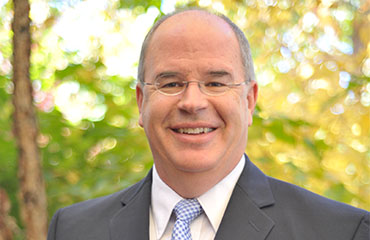What is an Elder Law Attorney?
“Elder Law” is a rare specialty for attorneys. It focuses on the needs of senior Americans who face the maze of government disability, aging and retirement laws and programs. They need help, lots of help!
The National Association of Elder Law Attorneys (NAELA), the first professional group, was formed in 1987 to improve the quality of legal services to seniors and people with special needs. Today it has more than 4,500 attorney members, but fewer than 15 Utah attorney members. That’s fewer than 2/10ths of 1% of the 7,500 licensed Utah attorneys — two lawyers in a thousand!
Our Utah elder law attorneys specialize in the following areas:
Asset Protection, Trusts and Arrangements
Utah Domestic Asset Protection Trust
In 2013, Utah passed new laws which allow a person to create a Utah Domestic Asset Protection Trust (DAPT). Many experts believe this new trust is among the most powerful in the nation in protecting assets from future creditors.
In addition to the new Utah Domestic Asset Protection Trust, elder law attorneys have a variety of trusts and other arrangements for qualifying for Utah Medicaid, Veteran’s benefits and other government programs. “Special Needs Trusts,” for example, are very effective in sheltering gifts to a disabled person.
Will Contests, Probate Disputes and Trust Lawsuits
Will contests, probate disputes and trust lawsuits are part our our litigation practice
“Litigation” is a dispute which goes to court. Many attorneys who file probates do not like being in a courtroom and do not have much experience in trials and contested hearings. We like being in the courtroom.
We can help you resolve disputes as quickly as possible and with the least expense. Jack Helgesen is a former president of the Utah Trial Lawyers Association and has more than thirty years of experience in the courtroom. Michael Houtz has more than fifteen years as a courtroom prosecutor. They both are very comfortable fighting for you in the courtroom
These issues may require probate litigation:
- Disputes about the validity of the will.
- Disputes over who should be appointed as Personal Representative (administrator or executor) to manage the affairs of the estate.
- Disputes about the management of the estate.
- Disputed claims by creditors.
- Lawsuits to collect money or property owed to the estate.
- Disputes over who gets the property or money
- When you have a contested probate case, we can help you resolve it
Some facts you should know about Utah litigation
- Litigation is the legal process of resolving disputes
- Probate disputes begin with the filing of objections, petitions or motions in the proper court. After the dispute is filed, the parties usually engage in discovery by asking and answering questions and demands for evidence. We often use paralegals to keep you legal costs lower in this stage of the case
- Hearings are often held by Judges to schedule a case, simplify the issues, resolve procedural disputes or to decide cases that don’t need a trial
- Trials are the formal presentation of evidence by witnesses
- Appeals are attempts of a dissatisfied party to have a higher court reverse a decision at any stage of a lawsuit
- Settlement occurs whenever the parties can agree to resolve their dispute. In Utah, most lawsuits are settled
These are options we may use to settle a dispute:
- Mediation brings parties together to work out their dispute with the help of a mediator, a trained specialist who is often a judge or former judge. Attorneys at Helgesen,Houtz & Jones have conducted hundreds of successful Utah mediations.
- Arbitration allows people to take their dispute to a neutral third-party who can hear and decide their case without the time and expense of a lengthy legal court battle. Arbitration is not a solution for everyone, but it might help you.
- Settlement is possible in almost every legal dispute if the lawyers are creative. We will never settle your case without your permission, but if you want to settle we can help you find the way. We have settled thousands of Utah legal disputes without going to trial.
If we can resolve your dispute without a court fight, we will!
Our legal team of lawyers, paralegals and legal assistants has been winning lawsuits for over 30 years. We can help you!
Elder Abuse and Financial Exploitation of the Elderly
Our Utah elder law attorneys have special training in elder abuse
Elder law attorneys have special training to recognize signs of elder abuse and to use Utah’s legal system to protect Utah seniors. Some elder law attorneys, like those in our law firm, also have special training in financial abuse of the elderly. In Utah, financial abuse is most often committed by a family member or caretaker who has access to the senior’s financial accounts and records. The financial abuse may be a result of dishonesty with powers of attorney, theft, fraud, coercion or threats, or “financial exploitation” which in Utah occurs when a person exploits the trust, the mental condition or the physical condition of a vulnerable adult.
Guardianships and Conservatorships
We give power and protection to Utah seniors and disabled people
When a person becomes mentally or physically incapacitated and can no longer take care of themselves, they need help. Soon.Elderly woman learning about Utah guardianships and conservatorships
Most people will never need a guardian or a conservator. Utahns with declining abilities can be helped often by powers of attorneys, Utah Advance Health Care Directives (medical powers of attorney), and trusts set up to manage investments and assets. Then, one day, family members and friends realize they lack legal authority to really help. That authority requires court action.
What is the difference between a guardianship and a conservatorship in Utah?
The two terms are often confused or are assumed to have the same meaning. They refer to two separate needs of a person with limited abilities: the need to be guarded and care for, and the need to have their money and property managed and conserved. A guardian guards and a conservator conserves.
“Guardian” and “Guardianships” refer to the appointment of a person to guard and care for another. A “guardian” is a person who has legal authority to make personal decisions for another person, such as choosing a place for them to live, making medical decisions, hiring people to help them, signing contracts, dealing with governments, and making other personal decisions. “Guardianship” refers to the relationship.
“Conservator” and “conservatorship” refer to the appointment of a person to manage and conserve the money and property of another person. A “conservator” is a person who has legal authority to make financial decisions for another person, such as investing, protecting their property, making financial decisions, paying their bills, dealing with creditors and debt, selling their property and making other personal financial decisions. . “Conservatorship” refers to the relationship.
Utah adults do not have guardians or conservators unless they are court appointed
Parents are the natural guardians and conservators of their children until they reach the age of majority (age 18 in Utah). When they reach age eighteen, people are legally entitled to make their own decisions. If they can’t care for themselves or make their own financial decisions after age eighteen then they cannot appoint a guardian for themselves, and a court must get involved. The court will consider their desires and preferences if they are able to express them, but no one will have legal authority without a court appointment.
Our attorneys file the required papers to get the right person appointed.
We file for emergency guardianships and conservatorships.
An urgent need for help can occur suddenly. Our Utah guardianship and conservatorship attorneys will act quickly to get you and the people you care about all the help you need.
Every life is different. Please call us for a free evaluation of your situation.
Medicaid Planning
Protect Your Assets and Still Qualify for Medicaid
Our attorneys are available to help you plan for the future and the potential need for Medicaid. Since Medicaid is only available to those who present a financial need, many people use their own finances to pay for nursing home care. This can be quite expensive and may not leave anything left for funeral expenses or for your heirs.
Luckily, there are ways you can protect you assets and still qualify for Medicaid. Our attorneys will show you the options that are available and answer any questions you have about estate planning.
To schedule an appointment with one of our attorneys, please give us a call today.
Probate and Probate Litigation
Elder law attorneys have special training and experience in Utah probate
Elder law attorneys have special training and experience in Utah probate, the court process for wrapping up the affairs of a person who has died. In Utah, special procedures and rules apply to probate. A Utah Elder Law attorney can help families gain control of the affairs of a deceased person as quickly as possible.
“Probate litigation” refers to court disputes and lawsuits disputing Utah probates, including disputes about wills, inheritances of people who left no wills, appointments of Personal Representatives (executors), accountings and many other issues which arise after a person dies.
Death brings its own pack of legal issues, and sooner or later Utah’s elderly will lose those close to them. The Utah probate process is often confusing, even to lawyers who don’t practice much in probate court. Our elder lawyers will help you sort out these probate issues:
- Is a probate necessary, or can it be avoided?
- What is the quickest and least expensive way through Utah probate?
- How can family fights be resolved or minimized?
- How should the property of a dying person be passed to the next generation with the least trouble?
In probate matters, experience counts.
An experienced attorney may be able to save you thousands of dollars and months, or years of time. Probate can be complicated. We see many unnecessary and unwise filings by inexperienced lawyers. Our Utah probate attorneys have decades of experience. Our Utah attorney probate attorneys, Jack Helgesen and Michael Houtz, have more than 50 years combined experience in complicated Utah probate matters.
Senior Injuries
Seniors may be due compensation for their accidents and injuries
You are in good hands with our Senior Injury lawyers. We have collected millions of dollars for injured Utahns like you. Call us for a free consultation and case evaluation, and remember you pay no fee unless you collect money.
Certified Medicare secondary payer professionals (CMSP) for senior injuries
Senior injury lawyers Jack Helgesen and Michael Houtz have a special interest in senior injuries – injuries to Utahns over the age of fifty. Many lawyers avoid these injuries because seniors often have pre-existing medical problems and because many other elements of a damage award may be more difficult to establish. Our lawyers understands these cases and offer you a combination of skills, interests and experience almost unheard of in Utah. They specialize in both Utah elder law and Utah injury claims. Jack Helgesen is a nationally Certified Medicare Secondary Payer Professional (CMSP), the only injury attorney in Utah with this honor. Tonya Hardy, our NALA Certified injury, also has the CMSP certification. A winning combination for you!
Attorney Jack Helgesen is Utah’s senior injury expert
Our Senior Injury Attorneys, Jack Helgesen and Michael Houtz, have more than 30 years of experience in litigation (lawsuits) and they can help you with these claims. Jack Helgesen is a nationally Certified Medicare Secondary Payer Professional (CMSP), the only injury attorney in Utah with this honor. Tonya Hardy, our NALA Certified injury, also has the CMSP certification. A winning combination for you!
We accept only serious medical malpractice claims over $100,000. We would like to evaluate your claims and give you our best advice.
Types of senior accidents and injuries in which compensation may be due
Social Security Disability
Your choices and time limits for a social security disability appeal
Question 1: What are the levels of appeal for Social Security Disability?
There are four levels of appeal for Social Security Disability. The first level after a denial is a Request for Reconsideration. The second level is a Request for Hearing. The third level is a Request for Appeals Council Review. The fourth is taking the claim to the United States District Court.
Question 2: Is the appeals process different for SSDI and SSI claims?
The appeals process is generally the same for SSDI claims and SSI claims. However, for SSI claims when requesting reconsideration, you have the ability to ask for a case review, informal conference, or formal conference.
Question 3: What should I do if my disability benefits have been denied?
You will receive a written letter stating that your claim has been denied or disapproved. If you have received a letter stating that the Social Security Administration has denied your claim, you must understand that you have 60 days to appeal the decision denying your claim. The safest way to compute the 60 day time period is by using the date on the letter denying the claim. The date of the denial is always found in the top right area of the letter. The appeal must be made in writing. There are forms for each type of appeal, except to the United States District Court. I would recommend that you contact an attorney at the time of the first denial so that you can receive help through the process. The attorney can evaluate your case and help you decide on a course of action.
Question 4: What are my choices after I receive a Social Security denial letter?
You have two choices after you receive a denial letter: you can appeal or you can do nothing, and your claim will end because you did not appeal. When you are denied I encourage you to contact me as soon as possible for a free case evaluation. I can explain your options and help you with your case. If you do not appeal within the 60 day time period for appeal, you will likely have to file a new case. If you choose not to appeal, you can generally re-file your claim at a later date.
Question 5: How long do I have to decide to request a reconsideration or request a hearing for an appeal?
A request for reconsideration is an appeal. You have 60 days from the date of your denial to file your request for reconsideration or a request for hearing depending upon which denial you have received. There is additional documentation that must go to Social Security with the request for reconsideration or the request for hearing such as authorization to disclose information forms and the disability report for an appeal. An appeal can be done online or it can be done by mailing the forms in. In our office we do a requ8est for reconsideration online.
Question 6: What can I do if I missed the 60 day period to appeal?
Generally, you must re-file your claim. If there is just cause to explain why you did not file the appeal within the 60 day time period, you may get your claim reinstated. For example, prior to the time for online appeals, I mailed an appeal to Social Security. I kept copies of all of the documents that I mailed to Social Security in my office. When they said they did not receive the appeal and the time for appeal had expired, I mailed documents again to show that we did send them in on time. The appeal was reinstated. If someone was having severe medical problems that could be documented, perhaps including hospitalizations, then Social Security may find just cause to extend the time for appeal. The decision of just cause to file an appeal late is made by the Office of Disability Adjudication and Review when requesting a hearing. The best approach is to file the appeal within the 60 day time period. If you do not appeal on time, for most situations the answer is that you must file a new claim.
How long does it take for a social security appeal to be decided?
Question 7: How long does a Social Security Reconsideration take in Utah?
I wish there was an exact answer for this question. Generally, a request for reconsideration will take from two to four months to be decided, although that can widely vary depending upon the medical records and whether there is a consultative examination. The decision for reconsideration is usually quicker than the initial decision that was made on the claim.
Question 8: How long does a Request for Hearing take in Utah?
After a request for hearing is filed, it takes several months until the hearing is scheduled. For years it was a six month period. It then became more than a year. It is approximately a year until you receive the hearing after filing a request for hearing. If you have exigent circumstances because of your health, the court may give you a priority hearing. This is unusual.
Winning a reconsideration of Social Security Disability benefits
Question 9: Do I need a lawyer to win a request for reconsideration or a request for hearing?
Your chances for winning increase if you have a competent attorney to help you with your case. The attorney knows what information is important to Social Security and can help present the medical and other information in such a way to increase your opportunity to win the claim. The medical records are extremely important, and the attorney can carefully read your records and find the records that help explain your impairments and the severity of your impairments according to your doctors. The attorney is also familiar with the law used to decide Social Security Disability cases.
Question 10: How is a lawyer paid to help me?
Lawyers are paid out of the back benefits that are awarded to you and your family. The government has set the fees which an attorney can be paid. An attorney can be paid 25% of your past due benefits that are awarded to you or your family or $6,000, whichever is less. The judge has to approve the fee agreement between the attorney and the client. Generally the Social Security Administration will pay your attorney directly from your back benefits if you win.
Question 11: How can I increase my chances of winning a request for reconsideration or a hearing?
One of the most important actions to increase your chances of winning a request for reconsideration is to make sure that your file contains all of your medical records. What your doctors have written about your impairments is extremely important to your case. This is considered to be objective medical evidence to prove your disability. Generally, it will be difficult to change the results on reconsideration when you were denied initially. However, the medical evidence is the substantive way to change a decision.
Winning an appeal of Social Security Disability benefits
Question 12: Do I need a lawyer to win an appeal?
No, but It helps to have a lawyer for several reasons. The lawyer is familiar with the law that is used to decide a social disability case which is essential to winning your case. Second, the attorney will become familiar with your medical records and will be able to put together your case to present to the judge, and to analyze the medical evidence and the law. The attorney will frequently write a brief for the judge to explain why you are disabled based upon the medical records and the law. The attorney will also be familiar with the judges and what information is important to your case. If a doctor is willing to write a letter for a patient, the attorney can provide information that would be helpful for the doctor to address in the letter. The attorney can also take time with you to understand the subjective impact of your impairments on you so that you can be prepared for your testimony at the hearing. In all of this, experience counts. We have handled hundreds of social security disability claims over the past thirty years. You must learn the process in your one claim.
Question 13: Do I have to pay my lawyer up front to help me with my appeal?
Social Security disability claims are done on a contingent fee basis so there is no attorney fee unless you win. The attorney fee if you win is set by federal law. The attorney fee is 25% of past benefits that are awarded to you and your family or $6,000 whichever is less. Sometimes an attorney must pay to collect some of your updated medical records from your doctor. These are considered costs and you may have to reimburse your attorney for costs in your case.
Question 14: How is a lawyer paid to help me in an appeal?
The lawyer is paid out of your past due benefits when you win your case. Most lawyers are paid directly by Social Security from your past due benefits so you do not have to worry about paying them.
Other questions about Social Security Disability
Question 15: What does it mean to “reopen” my claim?
There needs to be good cause to reopen the claim. Perhaps there is medical evidence that is relevant to the claim prior to the date the decision was made. For good cause a claim may be reopened and the new evidence considered. The administrative law judge makes the decision about whether to reopen a claim. You may also reopen a claim to a prior application for benefits that were denied if the application did not go to a hearing. Again, the judge decides whether your claim can be reopened. Reopening an prior claim that was made may give you more back benefits.
Question 16: When can I request an Appeals Council review?
If your claim is denied at a hearing by the administrative law judge, then you have 60 days to appeal the written decision of the judge to the Appeals Council. The Appeals Council takes a long time to decide your case, but in many instances it reverses the decision that was made by the judge. If you win your claim at the Appeals Council, your claim is remanded to the same judge for another hearing. You do not get a new judge on your case unless your claim is reversed twice by the appeals council.
Question 17: When can I appeal to federal court?
If your claim to the appeals council is denied, it may be appealed to United States federal court in the state where you live.
Question 18: What are “the listings” in Social Security law?
The listings are the laws used by the Social Security Administration and the judge to decide your case. They are called the “listing of impairments,” and there are separate listings for adults and for children. There are listings for many types of impairments, but there is not a listing for every possible type of medical impairment. The listings are organized according to body systems and types of impairments. For example, there are listings for musculoskeletal impairments which include back and joint problems, speech and special senses, respiratory system, cardiovascular system, digestive system, genitourinary system, hematological disorders, skin disorders, endocrine disorders, congenital disorders that affect multiple body systems, neurological disorders, mental disorders, malignant diseases, and immune system disorders. Under each of these areas there are several listings for different types of impairments.
Question 19: How is a “vocational expert” used in a Social Security Disability hearing?
The judge will have a vocational expert come to your hearing. The vocational expert will identify what types of employment you have done in the past. They consider the 15 previous years of employment as your past relevant work experience. The vocational expert will discuss your case based upon hypothetical questions given by the judge. The hypothetical questions will focus on health limitations that impact your ability to work. The vocational expert will be asked whether a person can work based on impairments, both the number of impairments and the severity, which might be similar to yours. Your lawyer will also be able to ask questions to the vocational expert.
Question 20: How is a “medical expert” used in a social security disability hearing?
The judge may have a medical expert come to your hearing. Some judges use medical experts and some judges do not use medical experts. The medical expert will have had the opportunity to review the medical records that are in your file. The judge will ask the medical expert to state what you impairments are according to the medical records. The judge may also ask the expert whether the expert believes that your impairments meet or equal the listings discussed above individually or by combination of impairments. Your lawyer will be able to ask questions of the medical expert.
Question 21: What is the difference between an SSDI claim and an SSI claim?
Both SSDI and SSI are disability benefits with the following general rules. SSDI stands for Social Security Disability Insurance benefits. It is a benefit which may be received based upon an individual’s work history. You must have a condition which is expected to be disabling for a period of at least 12 months. If there is a work history which qualifies an individual to be considered insured, then that individual may receive SSDI benefits if found disabled under the listing of impairments. These benefits are not income sensitive. An individual receives the monthly benefit based upon work history regardless of whether there is another person bringing income into the household. SSI stands for Supplemental Security Income and it is income sensitive. This benefit is generally available to those who do not have a work history or if the SSDI benefit is very low. Because it is income sensitive, other income that comes to the household from a spouse may offset the SSI benefit. Both disability benefits are decided under the same medical listings, and the decision process is the same.
Utah Wills, Trusts & Estate Planning
Specialized estate planning to protect elders
Probably more than 95% of the wills, trusts, powers of attorney, and estate plans written by lawyers in Utah contain provisions which can actually prevent a person from qualifying for Medicaid nursing home assistance. That is because estate plans are written to avoid estate tax which, for 2014, is expected to be paid only by Americans who have a net worth of more than $5,340,000. Few of us need estate tax planning, but more than one-third of us will spend time in a nursing home.
Elder law attorneys are trained to write unique wills, trusts and powers of attorney which consider the high risks of disability and help avoid the expensive disqualifications and “spend downs” of Medicaid.
Wills — Taking care of those you love after you are gone
A will is essential if you want to have any say in what happens to your property or the care of your minor children after your die. By writing a will, you can decide what will be done with your property and even name a guardian for your young children. This is ideal because we cannot know when an accident or sickness may end our lives prematurely.
Some people assume their family members will inherit their assets automatically, but this is not the case. Without a will, the decisions regarding your assets are left up to the state. This can be a long and costly process. When it is over, the decisions still may not be what you or your family and loved ones would have chosen. Let us help you with the affairs of your estate by drafting a will to protect your assets for your loved ones. Call us today to schedule a free consultation!
Trusts — Creating a living trust
By creating a living trust, you can protect your assets from the costly process of probate. When creating a trust, you name yourself as the trustee or become a co-trustee along with your spouse. Then, you can begin transferring ownership of your assets to the trust. You will also name the person or people you want to inherit your assets when you die. There is no need to worry about any court proceeding or probate.
Some may feel overwhelmed to make such important decisions in a document like a will or a trust. It is comforting to know that the decisions you make in your trust can be changed if needed. Different circumstances may arise which would incline you to change the outline of your trust. Also, wouldn’t you prefer to make these important decisions now with a clear mind rather than leave them up for others to decide after your death?
Our attorneys are available to help you set up a trust that can protect your assets from probate.
Special Needs Trust — Protecting the assets of those with mental or physical disabilities
A special needs trust is a way to protect assets for an individual with a mental or physical disability or illness. Although many Americans try to find ways to save for retirement, they may not always think of their children’s lifelong needs. Children with special needs may never grow to be independent. They may need to continue relying on their parents even after their parents have passed on.
Do You have a question regarding a family will?
If you need to dispute a will, our attorneys are available to help you. Wills and trusts are written with the goal that there will not be any confusion regarding the intentions of the will. However, sometimes a single mistake can change a will’s intent or even make it invalid. We will work with you to discover the facts and the real intentions of the will.
Our estate planning attorneys are available to help you set up a special needs trust for your loved one. This will ensure that their needs are provided for even after you are gone.
Experience Counts
Attorneys at Helgesen, Houtz & Jones have planned thousands of estates for clients in Utah. Our lead estate planner, Jack Helgesen, has a degree in finance. He began his career by planning large estates for retirees in Mesa, Arizona. In 1982, Jack returned to Utah and has continued that work for over 30 years. he writes a regular Utah Elder Law column in Simple Seniors Magazine, including frequent articles on Utah Estate Planning topics. He is a member of the national Association of Elder Law Attorneys (NAELA).
Our Utah estate planning attorneys can help you with the following estate planning needs:
- Utah Wills
- Utah Living Trusts
- Utah Advance Health Care Directives
- Utah Powers of Attorney
- Utah Revocable Trusts
- Utah Irrevocable Trusts
- Utah Asset Protection Trusts
- Utah Legacy Trusts
- Utah Special Needs Trusts
- Good Ways to Avoid Utah Probate
- How to leave an inheritance to irresponsible children
- Other estate planning issues











